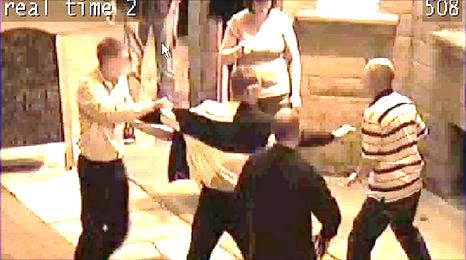Bystanders in Action in Violent Events

Imagine witnessing an armed robbery while shopping. Or walking home from the store and seeing a violent fight on the street. What would you do? Would you intervene? And what would happen if you did?
NSCR researcher Marie Rosenkrantz Lindegaard received two personal grants to investigate what you do in situations like these: an NWO Aspasia grant and a Danish Research Leader grant. Together with a research team of two postdocs and a PhD, she will analyse bystander behaviour in robberies and street fights in the Netherlands, Denmark and United Kingdom. The analysis will be based on the behaviour of offenders, victims and bystanders in these situations caught on CCTV cameras. The footage will be completed with information from police case files of the specific incidences. With this design, the team will draft a “First Aid Guide” for bystanders. It will advise bystanders on how they can help establish public safety.
The project not only challenges experimental research findings on bystander apathy when witnessing others in need of help, it also questions retrospective accounts of bystanders, offenders and victims. Pioneering research on violent events based on CCTV camera recordings by Exeter University professor Mark Levine and colleagues, and recently by Lindegaard, Wim Bernasco, and colleagues painted a different picture of bystanders – not in apathy – but rather in action. In a just finished report Overvallen in Beeld: Gedrag van Daders, Slachtoffers en Omstanders they showed how bystanders in shop robberies in the Netherlands engage in a range of different activities during robberies, including maintaining routines, escaping, confronting the offenders, and comforting the victims.
CCTV camera recordings are promising for criminological research because they provide an opportunity to observe what happens during criminal events. For criminologists this is unique because for the first time they get to see their actual subject matter. They no longer need to rely on retrospective and biased accounts of those who were involved.
So what would be better to do as a bystander? Just watch, walk away, or try to stop the violence? You will know when Lindegaard and her team have completed this research.
Actuele berichten

